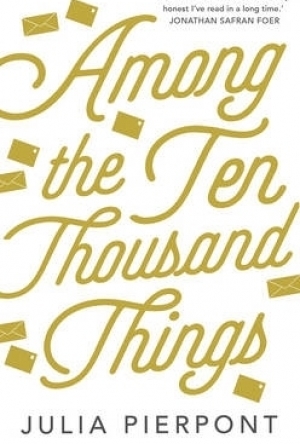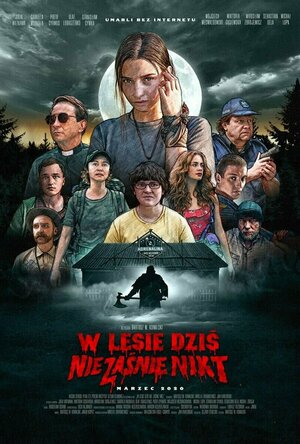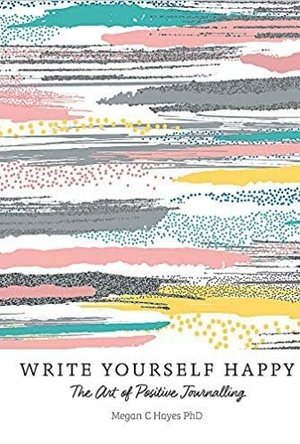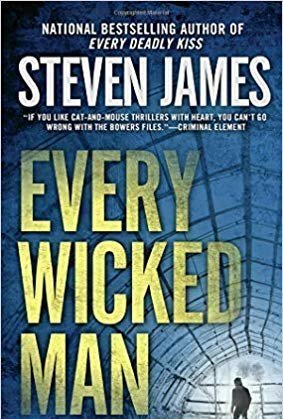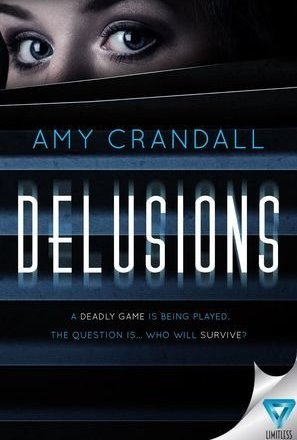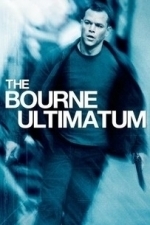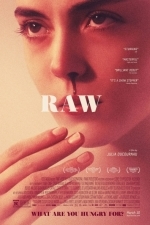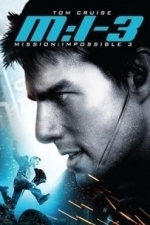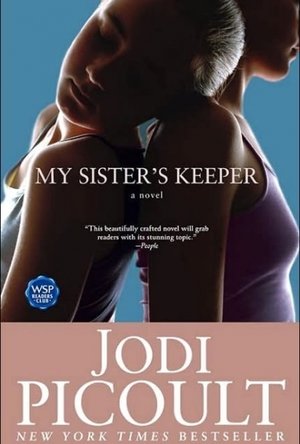Search
Search results
Kristy H (1252 KP) rated Among the Ten Thousand Things in Books
Feb 13, 2018
Review on my <a href="http://justacatandabookatherside.blogspot.com/2016/01/oh-im-becoming-ghost-in-your-life-and.html">blog here</a>.
Jack Shanley is a fairly well-known New York artist. He's a married father of two. He's also an adulterer, who carries on affairs in his New York studio. This comes back to bite him, so to speak, when one of his exes sends his wife a large box chronicling their entire relationship - emails, texts, sexts - all printed and contained in this one box. The box is delivered to Jack's apartment and opened by his eleven-year-old daughter, Kay, and fifteen-year-old son, Simon. They show the box to their mother, Deb, forcing her to confront the many flaws of her husband. Meanwhile, Kay and Simon are (justifiably) traumatized by the box's contents and the possible dissolution of their parents' marriage.
This was an odd book. As a child of divorce, a lot of this book hit home, and I felt myself feeling a great deal of sympathy for Deb, Kay, and Simon - especially as they disappear off to their vacation home, of sorts, to recover. (Alas, no vacation home when I was a child.) Julia Pierpoint is certainly a strong writer and her prose is lovely and well-crafted. Still, the book often just seems a little flat.
The strangest part of this book, to me, as many other reviewers have pointed out - is that is constructed in four parts - parts one and three basically deal with the immediate aftermath of the box's delivery and how the family reacts. Parts two and four tell us what happen to Jack, Deb, Kay, and Simon for their entire lives. It's an odd author tool, and I'm not sure it entirely works. For me, I was caught up enough in Part One's tale and then found Part Two incredibly jarring - even more so to be dumped back into the current story at Part Three. Part Four repeats Two a bit and tells a bit more about what happens to the characters. It's an odd device, and I really would have preferred not to have had Part Two stuck in there at all. I suppose it's an artistic overreach that appeals to critics but not most actual readers.
Overall, I found the book an intriguing look at a family dealing with a father's betrayal. Not a ton happens - it's not that sort of book - but Pierpont's writing is strong, and I liked Simon and Kay. I am not sure the book is one that will leave a lasting impression with me, though.
Jack Shanley is a fairly well-known New York artist. He's a married father of two. He's also an adulterer, who carries on affairs in his New York studio. This comes back to bite him, so to speak, when one of his exes sends his wife a large box chronicling their entire relationship - emails, texts, sexts - all printed and contained in this one box. The box is delivered to Jack's apartment and opened by his eleven-year-old daughter, Kay, and fifteen-year-old son, Simon. They show the box to their mother, Deb, forcing her to confront the many flaws of her husband. Meanwhile, Kay and Simon are (justifiably) traumatized by the box's contents and the possible dissolution of their parents' marriage.
This was an odd book. As a child of divorce, a lot of this book hit home, and I felt myself feeling a great deal of sympathy for Deb, Kay, and Simon - especially as they disappear off to their vacation home, of sorts, to recover. (Alas, no vacation home when I was a child.) Julia Pierpoint is certainly a strong writer and her prose is lovely and well-crafted. Still, the book often just seems a little flat.
The strangest part of this book, to me, as many other reviewers have pointed out - is that is constructed in four parts - parts one and three basically deal with the immediate aftermath of the box's delivery and how the family reacts. Parts two and four tell us what happen to Jack, Deb, Kay, and Simon for their entire lives. It's an odd author tool, and I'm not sure it entirely works. For me, I was caught up enough in Part One's tale and then found Part Two incredibly jarring - even more so to be dumped back into the current story at Part Three. Part Four repeats Two a bit and tells a bit more about what happens to the characters. It's an odd device, and I really would have preferred not to have had Part Two stuck in there at all. I suppose it's an artistic overreach that appeals to critics but not most actual readers.
Overall, I found the book an intriguing look at a family dealing with a father's betrayal. Not a ton happens - it's not that sort of book - but Pierpont's writing is strong, and I liked Simon and Kay. I am not sure the book is one that will leave a lasting impression with me, though.
LeftSideCut (3776 KP) rated Nobody Sleeps in the Woods Tonight (2020) in Movies
Oct 29, 2020 (Updated Oct 29, 2020)
Contains spoilers, click to show
As a starting note, please please please watch this film with the audio set to Polish with subtitles. Netflix started playing the dubbed version for me, and I managed about 30 seconds worth of cheesy American voice over before I couldn't stand it any longer. It's 100% more natural the way it was intended.
Nobody Sleeps in the Woods tonight is absolutely and wholly not original - it cherry picks parts from other horror movies and shamelessly imitates them, and do you know what? I don't hate it.
The whole movie is shot nicely, especially taking into account it's low budget.
Among these moments we have:
- A sleeping bag kill ripped straight out of Friday the 13th Part VII.
- A character explaining the rules of horror movies just like in Scream.
- A character tied to a chair and ballgagged a la Hostel.
- Big cannabalistic, dungaree wearing woodsman straight out of Wrong Turn.
- A cut-in-half-vertically-with-an-axe kill from Wrong Turn 2, using the same damn camera angle and everything.
- A character going through a woodchipper like in Tucker and Dale vs Evil
- An under the bed shot of someone being stabbed repeatedly with a machete, just like in Freddy vs Jason.
So yeah, absolutely zero points for originality, but props for executing it all to a satisfactory degree. A less cynical person could choose to look at it as a horror love letter, rather than a rip off.
Some of the camerawork is genuinely fantastic. There are multiple shots during the runtime that are quite captivating, and took me out of the standard slasher situation now and again.
The make up effects applied to the monster men are pretty good, and the movie delivers some pretty brutal gore. It's hard to fully tell, but it looked like a fair chunk of it was practical, which is always a bonus.
The characters are likable as well, especially the badass final girl Zodiac, played awesomely by Julia Wieniawa-Narkiewicz.
The film also touches on some social issues, such as the perception of homosexuality in Poland. It's a shame it's not explored further than a few lines of dialogue.
Nobody Sleeps in the Woods may be down right predictable, but if you can leave any cynicism at the door, then it's a pretty fun slasher to pass the time.
As my first foray into Polish horror, I found it mostly enjoyable. Worth checking out for any horror fans.
Nobody Sleeps in the Woods tonight is absolutely and wholly not original - it cherry picks parts from other horror movies and shamelessly imitates them, and do you know what? I don't hate it.
The whole movie is shot nicely, especially taking into account it's low budget.
Among these moments we have:
- A sleeping bag kill ripped straight out of Friday the 13th Part VII.
- A character explaining the rules of horror movies just like in Scream.
- A character tied to a chair and ballgagged a la Hostel.
- Big cannabalistic, dungaree wearing woodsman straight out of Wrong Turn.
- A cut-in-half-vertically-with-an-axe kill from Wrong Turn 2, using the same damn camera angle and everything.
- A character going through a woodchipper like in Tucker and Dale vs Evil
- An under the bed shot of someone being stabbed repeatedly with a machete, just like in Freddy vs Jason.
So yeah, absolutely zero points for originality, but props for executing it all to a satisfactory degree. A less cynical person could choose to look at it as a horror love letter, rather than a rip off.
Some of the camerawork is genuinely fantastic. There are multiple shots during the runtime that are quite captivating, and took me out of the standard slasher situation now and again.
The make up effects applied to the monster men are pretty good, and the movie delivers some pretty brutal gore. It's hard to fully tell, but it looked like a fair chunk of it was practical, which is always a bonus.
The characters are likable as well, especially the badass final girl Zodiac, played awesomely by Julia Wieniawa-Narkiewicz.
The film also touches on some social issues, such as the perception of homosexuality in Poland. It's a shame it's not explored further than a few lines of dialogue.
Nobody Sleeps in the Woods may be down right predictable, but if you can leave any cynicism at the door, then it's a pretty fun slasher to pass the time.
As my first foray into Polish horror, I found it mostly enjoyable. Worth checking out for any horror fans.
Sassy Brit (97 KP) rated Write Yourself Happy: The Art of Positive Journalling in Books
Jun 5, 2019
With the book Write Yourself Happy: The Art of Positive Journalling, Megan C. Hayes reveals just how we can use practical and scientifically proven methods to increase our happiness through journalling. She’s an academic in Positive Psychology and Creative Writing, and that shows via her knowledge and understanding in this well-written and enlightening book.
I enjoy the process of writing and feel like I am quite a creative person. I’ve read many books like this, and ‘Artist’s Way’ by Julia Cameron and the companion workbook , are just two of them, so I was really happy to learn about this, and keen to read it myself.
The first thing I cannot help but tell you is how the cover has been printed in a way that is is raised in some places, making it very tactile. And yes, I can’t help touching it! The second thing I noticed, before I even began to read it, was how the pages inside are as colourful as the front cover, and filled with the same pastel shades within.
I found it quite amazing how we can use diary writing to discover more about ourselves, overcome difficulties and experience a positive way to reflect on our lives through both good and bad times. It makes sense, when you think about it, how talking to someone about problems can help, so why not express yourself in the form of writing? And this is just what this book encourages you to do in a way that we can reflect on our writing to positively assess our day. It’s not about bigging yourself up and writing only positive things, it’s about really letting go and understanding the psychology behind the case studies and ‘take-away’ lessons to practice for yourself.
Megan has an encouraging, reassuring and uplifting tone, and I really enjoy reading about the psychological and beneficial aspects of journalling. The author uses eight of our most commonly experienced and life-affirming emotions to journal about; joy, gratitude, serenity, interest, hope, pride awe and love. Now some of these may sound a bit new-agey and put some of you off, but it’s set out in a down-to-earth way, that I found very inspiring and not preachy at all.
To conclude, I’d like to explain that writing this way is like reading an engrossing book. When you’re totally immersed it’s like you can actually feel the emotions, experiences and senses of your character. In the same way, writing down evokes similar sensations, memories, smells and feelings. It’s no wonder this positive journalling is a scientifically proven way to support our wellbeing, through personal expression and creativity.
Write Yourself Happy is a thoroughly researched, empowering, positive read.
I enjoy the process of writing and feel like I am quite a creative person. I’ve read many books like this, and ‘Artist’s Way’ by Julia Cameron and the companion workbook , are just two of them, so I was really happy to learn about this, and keen to read it myself.
The first thing I cannot help but tell you is how the cover has been printed in a way that is is raised in some places, making it very tactile. And yes, I can’t help touching it! The second thing I noticed, before I even began to read it, was how the pages inside are as colourful as the front cover, and filled with the same pastel shades within.
I found it quite amazing how we can use diary writing to discover more about ourselves, overcome difficulties and experience a positive way to reflect on our lives through both good and bad times. It makes sense, when you think about it, how talking to someone about problems can help, so why not express yourself in the form of writing? And this is just what this book encourages you to do in a way that we can reflect on our writing to positively assess our day. It’s not about bigging yourself up and writing only positive things, it’s about really letting go and understanding the psychology behind the case studies and ‘take-away’ lessons to practice for yourself.
Megan has an encouraging, reassuring and uplifting tone, and I really enjoy reading about the psychological and beneficial aspects of journalling. The author uses eight of our most commonly experienced and life-affirming emotions to journal about; joy, gratitude, serenity, interest, hope, pride awe and love. Now some of these may sound a bit new-agey and put some of you off, but it’s set out in a down-to-earth way, that I found very inspiring and not preachy at all.
To conclude, I’d like to explain that writing this way is like reading an engrossing book. When you’re totally immersed it’s like you can actually feel the emotions, experiences and senses of your character. In the same way, writing down evokes similar sensations, memories, smells and feelings. It’s no wonder this positive journalling is a scientifically proven way to support our wellbeing, through personal expression and creativity.
Write Yourself Happy is a thoroughly researched, empowering, positive read.
Sassy Brit (97 KP) rated Every Wicked Man in Books
Jun 5, 2019
With the book Write Yourself Happy: The Art of Positive Journalling, Megan C. Hayes reveals just how we can use practical and scientifically proven methods to increase our happiness through journalling. She’s an academic in Positive Psychology and Creative Writing, and that shows via her knowledge and understanding in this well-written and enlightening book.
I enjoy the process of writing and feel like I am quite a creative person. I’ve read many books like this, and ‘Artist’s Way’ by Julia Cameron and the companion workbook , are just two of them, so I was really happy to learn about this, and keen to read it myself.
The first thing I cannot help but tell you is how the cover has been printed in a way that is is raised in some places, making it very tactile. And yes, I can’t help touching it! The second thing I noticed, before I even began to read it, was how the pages inside are as colourful as the front cover, and filled with the same pastel shades within.
I found it quite amazing how we can use diary writing to discover more about ourselves, overcome difficulties and experience a positive way to reflect on our lives through both good and bad times. It makes sense, when you think about it, how talking to someone about problems can help, so why not express yourself in the form of writing? And this is just what this book encourages you to do in a way that we can reflect on our writing to positively assess our day. It’s not about bigging yourself up and writing only positive things, it’s about really letting go and understanding the psychology behind the case studies and ‘take-away’ lessons to practice for yourself.
Megan has an encouraging, reassuring and uplifting tone, and I really enjoy reading about the psychological and beneficial aspects of journalling. The author uses eight of our most commonly experienced and life-affirming emotions to journal about; joy, gratitude, serenity, interest, hope, pride awe and love. Now some of these may sound a bit new-agey and put some of you off, but it’s set out in a down-to-earth way, that I found very inspiring and not preachy at all.
To conclude, I’d like to explain that writing this way is like reading an engrossing book. When you’re totally immersed it’s like you can actually feel the emotions, experiences and senses of your character. In the same way, writing down evokes similar sensations, memories, smells and feelings. It’s no wonder this positive journalling is a scientifically proven way to support our wellbeing, through personal expression and creativity.
Write Yourself Happy is a thoroughly researched, empowering, positive read.
I enjoy the process of writing and feel like I am quite a creative person. I’ve read many books like this, and ‘Artist’s Way’ by Julia Cameron and the companion workbook , are just two of them, so I was really happy to learn about this, and keen to read it myself.
The first thing I cannot help but tell you is how the cover has been printed in a way that is is raised in some places, making it very tactile. And yes, I can’t help touching it! The second thing I noticed, before I even began to read it, was how the pages inside are as colourful as the front cover, and filled with the same pastel shades within.
I found it quite amazing how we can use diary writing to discover more about ourselves, overcome difficulties and experience a positive way to reflect on our lives through both good and bad times. It makes sense, when you think about it, how talking to someone about problems can help, so why not express yourself in the form of writing? And this is just what this book encourages you to do in a way that we can reflect on our writing to positively assess our day. It’s not about bigging yourself up and writing only positive things, it’s about really letting go and understanding the psychology behind the case studies and ‘take-away’ lessons to practice for yourself.
Megan has an encouraging, reassuring and uplifting tone, and I really enjoy reading about the psychological and beneficial aspects of journalling. The author uses eight of our most commonly experienced and life-affirming emotions to journal about; joy, gratitude, serenity, interest, hope, pride awe and love. Now some of these may sound a bit new-agey and put some of you off, but it’s set out in a down-to-earth way, that I found very inspiring and not preachy at all.
To conclude, I’d like to explain that writing this way is like reading an engrossing book. When you’re totally immersed it’s like you can actually feel the emotions, experiences and senses of your character. In the same way, writing down evokes similar sensations, memories, smells and feelings. It’s no wonder this positive journalling is a scientifically proven way to support our wellbeing, through personal expression and creativity.
Write Yourself Happy is a thoroughly researched, empowering, positive read.
Ivana A. | Diary of Difference (1171 KP) rated Delusions in Books
Sep 14, 2018
A must-have for all the lovers of psychological thrillers and mysteries – this is a book that will show you a twisted side of a human being so well, that you will not know what happened once you reach the end! A masterpiece of a thriller – a delight for all the murder solvers out there!
''She remembered now. The deaths. They weren't just delusions planted in her mind by others. They were real.''
This book starts in an interrogation room, where two detectives are questioning Abigale about the murders that happened - and she is the main suspect. As the interrogation happens in the present, we follow the story in the past from Abigale's point of view, from the moment she moves into the new town.
The story and plot are so well set, and the past and present are so well connected that give you clues step by step, until you reach the grand ending, and nothing is as you expected. Even though I realised what is happening around the middle of the book, I still had to keep reading to find out whether it was true in the end.
This is, for certain, the best ending of a mystery book I have read so far!
The characters - some of them - are so twisted, and so psychologically unstable and scary, that it makes you wonder. Such possessiveness and anger, and twisted mind - Amy managed to perfectly such a rare condition. ( I am trying so hard here to stay away from all the spoilers.)
''Abigale wasn't the outgoing type. She'd rather sit in her room with her nose buried in a book than socialise with anyone outside her inner circle of friends, which was small to begin with.''
I wish I could connect with Abigale's character - but I just couldn't. That was the only flaw I had with this book. I didn't care enough for her, and for what was happening to her. The side characters were amazingly portrayed though - I enjoyed reading about Julia and Mike, and Damien - what an interesting character!
''There was something about him that made her feel alive and ready for anything, but there was another part that screamed danger. She wasn't sure she liked either half.''
The ending, as I already mentioned, was the best one I have read - it was so unexpected and so amazing - I can't explain that feeling of satisfaction when all the little pieces from the puzzle throughout the book finally come together - spectacular!
If you love mystery, psychological thrillers and good book that keeps you on your toes all the time - this is the book for you. I highly recommend it!
Thank you to the author, Amy Crandall, for sending me an e-copy of this book in exchange for an honest review.
''She remembered now. The deaths. They weren't just delusions planted in her mind by others. They were real.''
This book starts in an interrogation room, where two detectives are questioning Abigale about the murders that happened - and she is the main suspect. As the interrogation happens in the present, we follow the story in the past from Abigale's point of view, from the moment she moves into the new town.
The story and plot are so well set, and the past and present are so well connected that give you clues step by step, until you reach the grand ending, and nothing is as you expected. Even though I realised what is happening around the middle of the book, I still had to keep reading to find out whether it was true in the end.
This is, for certain, the best ending of a mystery book I have read so far!
The characters - some of them - are so twisted, and so psychologically unstable and scary, that it makes you wonder. Such possessiveness and anger, and twisted mind - Amy managed to perfectly such a rare condition. ( I am trying so hard here to stay away from all the spoilers.)
''Abigale wasn't the outgoing type. She'd rather sit in her room with her nose buried in a book than socialise with anyone outside her inner circle of friends, which was small to begin with.''
I wish I could connect with Abigale's character - but I just couldn't. That was the only flaw I had with this book. I didn't care enough for her, and for what was happening to her. The side characters were amazingly portrayed though - I enjoyed reading about Julia and Mike, and Damien - what an interesting character!
''There was something about him that made her feel alive and ready for anything, but there was another part that screamed danger. She wasn't sure she liked either half.''
The ending, as I already mentioned, was the best one I have read - it was so unexpected and so amazing - I can't explain that feeling of satisfaction when all the little pieces from the puzzle throughout the book finally come together - spectacular!
If you love mystery, psychological thrillers and good book that keeps you on your toes all the time - this is the book for you. I highly recommend it!
Thank you to the author, Amy Crandall, for sending me an e-copy of this book in exchange for an honest review.
Gareth von Kallenbach (980 KP) rated The Bourne Ultimatum (2007) in Movies
Aug 14, 2019
When last audiences left Jason Bourne (Matt Damon), he had just exposed a coverup and in doing so, extacted revenge upon those who killed his girlfriend and hunted him. In the new thriller “The Bourne Ultimatum”, Bourne is back in a big way, as he becomes unwittingly entangled in a international manhunt, when a reporter gets to close to the truth of a top secret program.
With most of his memory still missing, Boune travels to London to seek out the reporter, in an effort to learn what he knows, hoping it will lead him to the answers he seeks. Things take a turn for the worse when Bourne is discovered, by the powers that created him who are convinced that he is a danger to the program, and may expose everything he knows to the media. Unwilling to take that chance, Bourne is targeted for elimination which sets into motion a frantic series of events that spans seven cities around the world.
Tasked with locating Bourne is Pamela Landy (Joan Allen), who while dedicated to her task, is convinced that Bourne is simply caught up in the mix, and wants nothing more than to get on with his life.
Bourne in the course of tracking the source of the leak eventually meets up with Nicky Parsons (Julia Stiles), who not only gets Bourne up to speed, but helps him attempt to locate her boss, as he may very well be the source of the information leak and the key to unlocking Bourne’s missing memories.
Between daring action scenes, intrigue, and solid Drama, Bourne begins to unravel the puzzle as he attempts to solve the mystery and stay alive from the myriad of threats that target his every move.
This Bourne is solid and fits very well into the framework of the past two films. Damon has never been stronger his signature role and is able to convincingly transition from action sequences to the dramatic elements the story requires adroitly while never losing his connection with the audience. Bourne while dangerous is in many ways a victim, who simply wants to know the truth, and is easy for the audience to support.
There are numerous action and chase sequences that combine brutality and fluidity in a amazing combination. This is not a CGI fest, this is flesh and bone, metal and glass combining to create one of the best action dramas ever to grace the screen.
The film is well paced and never overstays its welcome thanks to a plot that is intelligent yet not overly complicated.
In a summer of sequels that have mainly not lived up to expectations, Bourne is a film that delivers.
With most of his memory still missing, Boune travels to London to seek out the reporter, in an effort to learn what he knows, hoping it will lead him to the answers he seeks. Things take a turn for the worse when Bourne is discovered, by the powers that created him who are convinced that he is a danger to the program, and may expose everything he knows to the media. Unwilling to take that chance, Bourne is targeted for elimination which sets into motion a frantic series of events that spans seven cities around the world.
Tasked with locating Bourne is Pamela Landy (Joan Allen), who while dedicated to her task, is convinced that Bourne is simply caught up in the mix, and wants nothing more than to get on with his life.
Bourne in the course of tracking the source of the leak eventually meets up with Nicky Parsons (Julia Stiles), who not only gets Bourne up to speed, but helps him attempt to locate her boss, as he may very well be the source of the information leak and the key to unlocking Bourne’s missing memories.
Between daring action scenes, intrigue, and solid Drama, Bourne begins to unravel the puzzle as he attempts to solve the mystery and stay alive from the myriad of threats that target his every move.
This Bourne is solid and fits very well into the framework of the past two films. Damon has never been stronger his signature role and is able to convincingly transition from action sequences to the dramatic elements the story requires adroitly while never losing his connection with the audience. Bourne while dangerous is in many ways a victim, who simply wants to know the truth, and is easy for the audience to support.
There are numerous action and chase sequences that combine brutality and fluidity in a amazing combination. This is not a CGI fest, this is flesh and bone, metal and glass combining to create one of the best action dramas ever to grace the screen.
The film is well paced and never overstays its welcome thanks to a plot that is intelligent yet not overly complicated.
In a summer of sequels that have mainly not lived up to expectations, Bourne is a film that delivers.
Holly Johnson recommended Sgt. Pepper's Lonely Hearts Club Band by The Beatles in Music (curated)
Bo Burnham recommended Raw (2017) in Movies (curated)
Gareth von Kallenbach (980 KP) rated Mission: Impossible III (2006) in Movies
Aug 14, 2019
The summer movie season of 2006 is underway with the release of Mission Impossible 3 which once again stars Tome Cruise as agent Ethan Hunt. The film opens with a tense interrogation scene with an icily cold Philip Seymour Hoffman threatening to shoot a woman unless Ethan reveals the location of something called “The Rabbits Foot”.
The film then goes back in time where Ethan is busy entertaining at a party for his pending marriage where it is learned that he has put his days in the field behind him to be a training instructor as well as his pending marriage to Julia (Michelle Monaghan).
No sooner does the party get info full swing when Ethan is summed to a meeting by a phone call. During the meeting he is given a secret message and learns that one of his prize pupils, Lindsey (Keri Russell), has been captured by a known arms dealer named Owen Davian (Hoffman).
Normal policy is should an agent be captured, they are disavowed and on their own, but for this case, an exception is made and a plan is put into place to retrieve Lindsey. Despite his misgivings, Ethan is drawn back into the fray and joins the rescue team in Berlin.
What at first seems to be a text book rescue takes an unexpected twist and lands Ethan and his team afoul of the company director Brassel (Lawrence Fishburne). This sets the stage for a future operation to obtain Davian at the Vatican as it is hoped they can learn to whom he intends to deliver an item known as “The Rabbits Foot” and exactly what it is.
While things at first seem to go as planned, before long, Ethan and his team must deal with forces outside of their mission plan and are soon caught up in a situation that has grown larger than anyone could have predicted, and with dire consequences.
Sadly, despite the good setup, the film goes very wrong and very fast. One issue that arises is a plot so filled with holes and complications it makes even the most hackneyed summer movie plot seem like a Shakespearean wannabe in comparison. The film goes from one scenario to another with all sorts of new complications many of which are never fully explained, or worse yet left hanging.
Characters act a certain way only to change pace in the film without any explanation. One such scenario involves a character who helps Ethan only to later be revealed as a bad guy, yet the how, where, and why of their actions are never explained, as is one of the key plot devices that drives the film.
While I am willing to expect a certain amount of non-sequitors for a summer movie, the number that M.I. 3” tosses out is ludicrous.
Another glaring issue with the film is the action sequences. Yes, there are a few well planned sequences such as a helicopter chase and a daring battle on a bridge, but they all seem surprisingly flat and lack any real tension or drama. They just simply unfold without fully engaging the viewer.
Another issue is that Director J.J. Abrams uses very close camera angles for some of the action sequences which when combined with the shaky camera style, results in sequences that are very hard to watch due to the frantic motion. I am all for realism, but when I cannot fully understand what is going on as the camera is bouncing all over the scene, then this is a problem.
The final frustration I had with the film falls solely with Cruise himself. Yes I can separate all of the recent off camera exploits that have been well documented the past year, but what I do have an issue with is how unfit Cruise seems for the part. The man is a very good performer with a long history of box office success. Yet, his diminutive size does not make me believe him as an action star. It is hard to believe that he is capable of doing such daring acts of strength as well as dispatching all manner of imposing bad guys. In a very underwhelming finale, Hoffman seemed much more suited as a character of menace as his look and the way he carried himself was one of power. With Cruise, I kept seeing a person trying to make me believe his character was tough guy, and I simply was not buying it. The same was also true for his relationship with Julia. The utter lack of chemistry between them and the awkward and stiff love scenes did nothing to make me believe that this is a person whom Ethan is willing to risk everything for.
Hoffman fresh off his Oscar win for “Capote” does the best he can with what is at best a stock character but he like the supporting Ving Rhames are not given much to work with.
The locales of the film are amazing but sadly they alone cannot carry the film. During the approximately Two Hour and 10 minute run time, there were about 40 minutes of real entertainment for me and much of this came at the start of the film.
While it is better than the last film in the series, the issues I documented above really hamper what could have been, and should have been not only the best film in the series, but is instead another hollow Summer Film that looks flashy, just as long as you do not remove the bumper sticker to see all the dents underneath.
The film then goes back in time where Ethan is busy entertaining at a party for his pending marriage where it is learned that he has put his days in the field behind him to be a training instructor as well as his pending marriage to Julia (Michelle Monaghan).
No sooner does the party get info full swing when Ethan is summed to a meeting by a phone call. During the meeting he is given a secret message and learns that one of his prize pupils, Lindsey (Keri Russell), has been captured by a known arms dealer named Owen Davian (Hoffman).
Normal policy is should an agent be captured, they are disavowed and on their own, but for this case, an exception is made and a plan is put into place to retrieve Lindsey. Despite his misgivings, Ethan is drawn back into the fray and joins the rescue team in Berlin.
What at first seems to be a text book rescue takes an unexpected twist and lands Ethan and his team afoul of the company director Brassel (Lawrence Fishburne). This sets the stage for a future operation to obtain Davian at the Vatican as it is hoped they can learn to whom he intends to deliver an item known as “The Rabbits Foot” and exactly what it is.
While things at first seem to go as planned, before long, Ethan and his team must deal with forces outside of their mission plan and are soon caught up in a situation that has grown larger than anyone could have predicted, and with dire consequences.
Sadly, despite the good setup, the film goes very wrong and very fast. One issue that arises is a plot so filled with holes and complications it makes even the most hackneyed summer movie plot seem like a Shakespearean wannabe in comparison. The film goes from one scenario to another with all sorts of new complications many of which are never fully explained, or worse yet left hanging.
Characters act a certain way only to change pace in the film without any explanation. One such scenario involves a character who helps Ethan only to later be revealed as a bad guy, yet the how, where, and why of their actions are never explained, as is one of the key plot devices that drives the film.
While I am willing to expect a certain amount of non-sequitors for a summer movie, the number that M.I. 3” tosses out is ludicrous.
Another glaring issue with the film is the action sequences. Yes, there are a few well planned sequences such as a helicopter chase and a daring battle on a bridge, but they all seem surprisingly flat and lack any real tension or drama. They just simply unfold without fully engaging the viewer.
Another issue is that Director J.J. Abrams uses very close camera angles for some of the action sequences which when combined with the shaky camera style, results in sequences that are very hard to watch due to the frantic motion. I am all for realism, but when I cannot fully understand what is going on as the camera is bouncing all over the scene, then this is a problem.
The final frustration I had with the film falls solely with Cruise himself. Yes I can separate all of the recent off camera exploits that have been well documented the past year, but what I do have an issue with is how unfit Cruise seems for the part. The man is a very good performer with a long history of box office success. Yet, his diminutive size does not make me believe him as an action star. It is hard to believe that he is capable of doing such daring acts of strength as well as dispatching all manner of imposing bad guys. In a very underwhelming finale, Hoffman seemed much more suited as a character of menace as his look and the way he carried himself was one of power. With Cruise, I kept seeing a person trying to make me believe his character was tough guy, and I simply was not buying it. The same was also true for his relationship with Julia. The utter lack of chemistry between them and the awkward and stiff love scenes did nothing to make me believe that this is a person whom Ethan is willing to risk everything for.
Hoffman fresh off his Oscar win for “Capote” does the best he can with what is at best a stock character but he like the supporting Ving Rhames are not given much to work with.
The locales of the film are amazing but sadly they alone cannot carry the film. During the approximately Two Hour and 10 minute run time, there were about 40 minutes of real entertainment for me and much of this came at the start of the film.
While it is better than the last film in the series, the issues I documented above really hamper what could have been, and should have been not only the best film in the series, but is instead another hollow Summer Film that looks flashy, just as long as you do not remove the bumper sticker to see all the dents underneath.
Hazel (1853 KP) rated My Sister's Keeper in Books
Dec 7, 2018
“If you use one of your children to save the life of another, are you being a good mother or a very bad one?”
<i>My Sister’s Keeper </i>was the first Jodi Picoult novel I read. (I have since read all Picoult’s books to date) I was not expecting much when I first picked it up, especially as I was reading it for a medical ethics module at college. Yet this book rekindled my love of reading and suddenly, after only reading one story, I was asking for Jodi Picoult books for my birthday.
Many people may be familiar with the storyline, even if they have not read the book, as <i>My Sister’s Keeper</i> shot to fame when the film version hit the cinemas. Thirteen-year-old Anna Fitzgerald was Rhode Islands first genetically engineered baby, created with the purpose of providing her older sister Kate with the means to survive acute promyelocytic leukemia. However over the next few years Kate relapses resulting in Anna going under numerous procedures, such as bone marrow extraction, in order to save Kate’s life. Now things have got so bad that Kate will die unless Anna gives up one of her kidneys, yet unwilling to do this Anna hires a lawyer, Campbell Alexander, to sue her parents for the rights of her own body.
From reading a synopsis the reader can already see that <i>My Sister’s Keeper</i> is going to be an emotional story, but what was it that made me love the author so much?
The story was told from six points of view: Anna, Jesse (older brother), Sara (mother), Brian (father), Campbell and Julie (guardian ad litem). Notice that Kate was not one of the narrators, which leads us to speculate from the very start that Anna wins the case and Kate dies. Despite the six main characters there is no antagonist – unless you count cancer – and in all of them the reader can find something relatable.
In one of the chapters, Jesse pronounces that Kate is the martyr, Anna the peacekeeper and himself the lost cause. With Anna we can recognize the struggle to follow the decisions laid down for us by other people – a time when we have no choice of our own. Jesse represents the times when we have been ignored and forgotten because of bigger or more important events, thus resulting in attention seeking behaviour. Brian, the firefighter, the man who wants to save everyone, cannot put out the metaphorical fire that is his family. Sara, whose narrative starts in the past rather than present day, shows us how easy it is to get wrapped up in one problem (or daughter), ignoring everything (or everyone) else.
One thing that is great about all Picoult’s novels is that they are not focused on one storyline. Granted this book is focused on the trial and Kate’s illness, but the inclusion of Campbell and Julia’s voices provide an interesting subplot. Julia is not exactly thrilled to discover that she will be working alongside Campbell, a person she knew from school that she had a difficult past with. Since then Julia has found herself unlucky in love and blames Campbell for this. Campbell on the other hand has been having trouble of his own and now needs a service dog with him at all times. Yet he is self conscious about people knowing the true reason behind this and often comes up with creative lies to stop people from asking questions. “Maybe if God gives you a handicap, he makes sure you’ve got a few extra doses of humor to take the edge off.”
Another reason Picoult’s books are so great is that the reader learns something every time. <i>My Sister’s Keeper</i> is full of medical and legal jargon, which may go over some people’s heads, but it is also bursting with random bits of knowledge, for example the way a fire should be treated, facts about astronomy and many other interesting details that the characters use as metaphors to describe their experiences.
Without taking into account Picoult’s novels and writing style as a whole, <i>My Sister’s Keeper</i> is a story that will stay in people’s hearts and minds for a long time. It is never revealed who the narrator of the prologue was, but we immediately assume that it is Anna and that she wants Kate to die. By the end, we are still unsure who the character was but if it was Anna we see it in a completely different light. This is not a book about whether it is ethical for Anna to be Kate’s donor; it is not a story about cancer. Instead it is a message about the right for each person to have choices in regards to their lives.
A warning to potential readers: this book could break your heart, shock you or leave you in tears. <i>My Sister’s Keeper</i> is full of irony. Some of that makes up part of the story line, for instance Jesse’s experimentation with arson – fires that are then put out by his father. But the biggest sense of irony, the biggest shock is the ending (FYI this is the complete opposite to the film ending). After everything that has been achieved, devastating circumstances result in the same conclusion that it would have had Anna sat back and done nothing. Yet this does not make it a pointless story, despite Anna’s actions almost tearing the family apart, it also wakes them from the stupor that Kate’s illness has put them in and makes them realise how precious everything else in their life is too.
I highly recommend this book to everyone, and if you have not read a Jodi Picoult novel before I strongly suggest you begin with this one. It is suitable for adult and adolescent readers, especially those who like to think about hypothetical, moral questions. <i>My Sister’s Keeper</i> definitely gets you questioning your own choices and actions within your own life and may even make you view the world slightly differently.
<i>My Sister’s Keeper </i>was the first Jodi Picoult novel I read. (I have since read all Picoult’s books to date) I was not expecting much when I first picked it up, especially as I was reading it for a medical ethics module at college. Yet this book rekindled my love of reading and suddenly, after only reading one story, I was asking for Jodi Picoult books for my birthday.
Many people may be familiar with the storyline, even if they have not read the book, as <i>My Sister’s Keeper</i> shot to fame when the film version hit the cinemas. Thirteen-year-old Anna Fitzgerald was Rhode Islands first genetically engineered baby, created with the purpose of providing her older sister Kate with the means to survive acute promyelocytic leukemia. However over the next few years Kate relapses resulting in Anna going under numerous procedures, such as bone marrow extraction, in order to save Kate’s life. Now things have got so bad that Kate will die unless Anna gives up one of her kidneys, yet unwilling to do this Anna hires a lawyer, Campbell Alexander, to sue her parents for the rights of her own body.
From reading a synopsis the reader can already see that <i>My Sister’s Keeper</i> is going to be an emotional story, but what was it that made me love the author so much?
The story was told from six points of view: Anna, Jesse (older brother), Sara (mother), Brian (father), Campbell and Julie (guardian ad litem). Notice that Kate was not one of the narrators, which leads us to speculate from the very start that Anna wins the case and Kate dies. Despite the six main characters there is no antagonist – unless you count cancer – and in all of them the reader can find something relatable.
In one of the chapters, Jesse pronounces that Kate is the martyr, Anna the peacekeeper and himself the lost cause. With Anna we can recognize the struggle to follow the decisions laid down for us by other people – a time when we have no choice of our own. Jesse represents the times when we have been ignored and forgotten because of bigger or more important events, thus resulting in attention seeking behaviour. Brian, the firefighter, the man who wants to save everyone, cannot put out the metaphorical fire that is his family. Sara, whose narrative starts in the past rather than present day, shows us how easy it is to get wrapped up in one problem (or daughter), ignoring everything (or everyone) else.
One thing that is great about all Picoult’s novels is that they are not focused on one storyline. Granted this book is focused on the trial and Kate’s illness, but the inclusion of Campbell and Julia’s voices provide an interesting subplot. Julia is not exactly thrilled to discover that she will be working alongside Campbell, a person she knew from school that she had a difficult past with. Since then Julia has found herself unlucky in love and blames Campbell for this. Campbell on the other hand has been having trouble of his own and now needs a service dog with him at all times. Yet he is self conscious about people knowing the true reason behind this and often comes up with creative lies to stop people from asking questions. “Maybe if God gives you a handicap, he makes sure you’ve got a few extra doses of humor to take the edge off.”
Another reason Picoult’s books are so great is that the reader learns something every time. <i>My Sister’s Keeper</i> is full of medical and legal jargon, which may go over some people’s heads, but it is also bursting with random bits of knowledge, for example the way a fire should be treated, facts about astronomy and many other interesting details that the characters use as metaphors to describe their experiences.
Without taking into account Picoult’s novels and writing style as a whole, <i>My Sister’s Keeper</i> is a story that will stay in people’s hearts and minds for a long time. It is never revealed who the narrator of the prologue was, but we immediately assume that it is Anna and that she wants Kate to die. By the end, we are still unsure who the character was but if it was Anna we see it in a completely different light. This is not a book about whether it is ethical for Anna to be Kate’s donor; it is not a story about cancer. Instead it is a message about the right for each person to have choices in regards to their lives.
A warning to potential readers: this book could break your heart, shock you or leave you in tears. <i>My Sister’s Keeper</i> is full of irony. Some of that makes up part of the story line, for instance Jesse’s experimentation with arson – fires that are then put out by his father. But the biggest sense of irony, the biggest shock is the ending (FYI this is the complete opposite to the film ending). After everything that has been achieved, devastating circumstances result in the same conclusion that it would have had Anna sat back and done nothing. Yet this does not make it a pointless story, despite Anna’s actions almost tearing the family apart, it also wakes them from the stupor that Kate’s illness has put them in and makes them realise how precious everything else in their life is too.
I highly recommend this book to everyone, and if you have not read a Jodi Picoult novel before I strongly suggest you begin with this one. It is suitable for adult and adolescent readers, especially those who like to think about hypothetical, moral questions. <i>My Sister’s Keeper</i> definitely gets you questioning your own choices and actions within your own life and may even make you view the world slightly differently.
